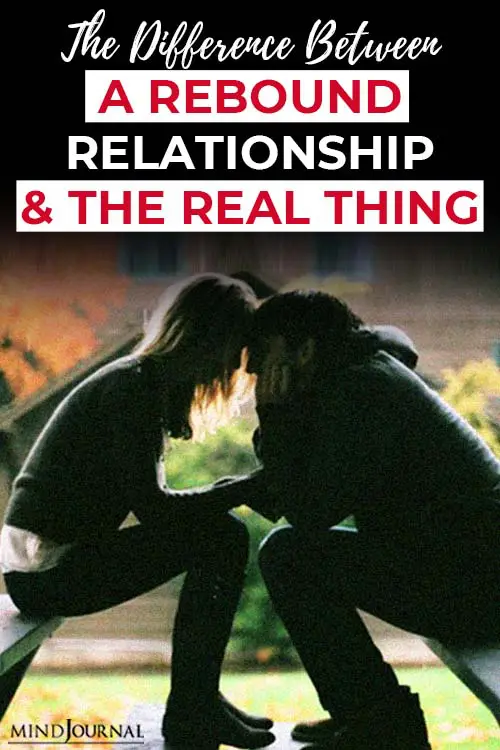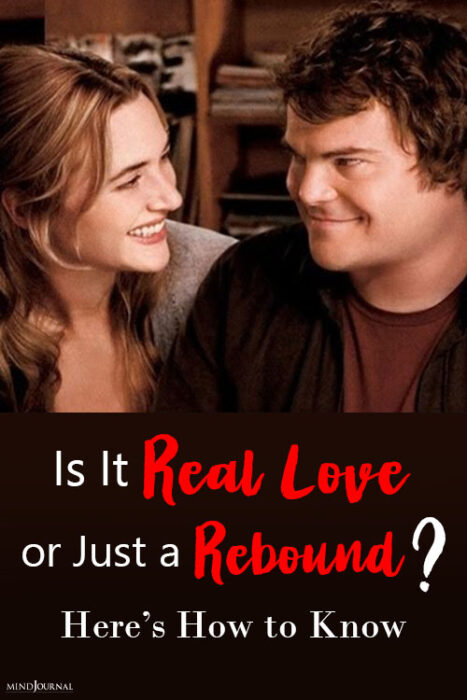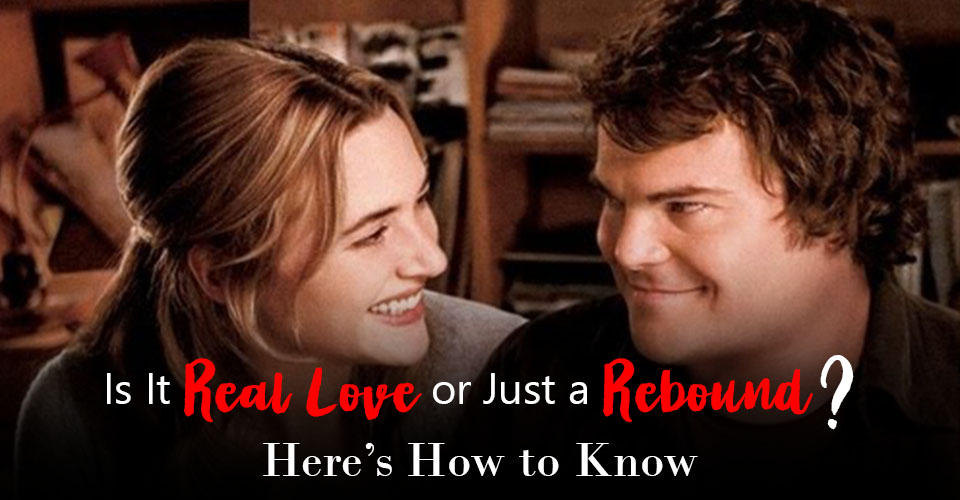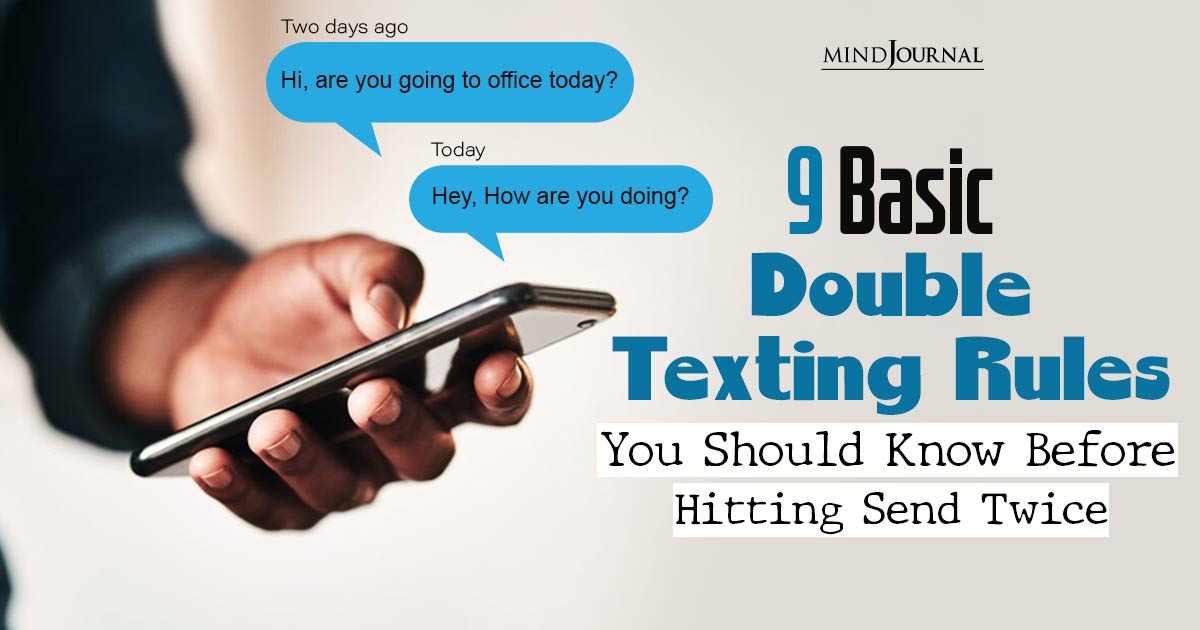How do you know that the relationship you are in right now is a genuine, and healthy one, or is it simply a rebound relationship? Knowing the difference between the two can save you a whole lot of heartbreak, you know.
Rebounds can be weird. It can be hot and cold at the same time. It can move fast and slow simultaneously. You feel like spending more time with them, yet there might not be a real connection.
But how can you know that you’re with someone just to get over your ex or if you are actually falling for them? What if they are The One?
Knowing the difference could save you from another heartbreak.
Real Relationship Or A Rebound Relationship?
The funny thing about being in a rebound relationship: it’s never just the two of you who are in it. There’s always someone else lurking in the corners. Namely, your ex. Maybe even your rebound partner’s ex, too.
Regardless of who is taking refuge in the rebound relationship, the whole thing is a bit, shall we say, crowded.
You might go into a rebound relationship with both eyes open and both partners willing. You might even think love has swooped in to rescue you from the agony of your recent breakup.
Related: 5 Reasons Why Rebound Relationships Do More Harm Than Not
No matter how you enter a rebound relationship, there are several tell-tale signs that will distinguish it from the real thing.
The most distinguishing characteristic of a rebound relationship is that it’s a distraction. It’s a band-aid for your broken heart and all those feelings you haven’t been able to bear to feel since your break-up.
The rebound relationship is all about feeling better and filling the void left by your ex’s removal from your life. It’s about not feeling lonely. Sometimes it’s even about not feeling at all.
The irony of the rebound relationship is that those who are in it truly want to be in love. They miss the security of being in love. And that yearning, conditioned by memory and not the present reality, can make a new relationship feel like love.
Perhaps you meet someone who flings you into that hormone rush of “love at first sight.” The feelings are sudden, intense, and unmistakable. You’re convinced (thank God) that you haven’t, in fact, lost your lovability – you are still lovable!
When a physical attraction is all-consuming, you can be pretty sure it’s lust, not love, at the helm. Love, after all, takes time and is about so much more than physical attraction.
A rebound relationship isn’t devoid of benefits — depending, of course, on how you view “benefits.” It’s no secret that rebound romance is, to a great extent, based on sex. Whether you are friends-with-benefits or two desperados, sex is an easy distraction from what you don’t want to face.
What’s unique about a rebound connection is that its magic lasts only as long as the two of you are together. Sure, you feel cheered up, and you keep all those nasty emotions at bay. But as soon as the other person heads home or off on a business trip, your thoughts return to one person: your ex.
The person you miss isn’t the one you just slept with. It’s the one you will never sleep with again.
Surprisingly, rebound sex is rarely as mind-blowing as you might think or hope. It may be decent enough to keep you feeling happy for a while, but it lacks the palpable passion of true love.
And that’s the thing about “the real thing.” You feel it. The sex goes beyond lust to true passion and concern for the other’s fulfillment.
But in a rebound relationship, when the sex wears off, the relationship usually ends.
The danger of rebound dating, of course, is that one person falls for the other and gets hurt. And the second s/he announces a desire for more in the relationship, a decision has to be made. If the relationship isn’t grounded in true love (or at least its potential), it usually comes to an end.
When a relationship is a real thing, one person’s expressed desire for more is welcomed by the other. It’s a non-threatening revelation of the relationship’s natural progression.
But in the rebound relationship, one person asking for more becomes a wake-up call to the other person’s true motives.
Not everyone realizes that s/he is being used by someone on the rebound. And that recognition of unrequited love can be humiliating and deeply painful.
So how do you know if your new relationship is the real thing or just a rebound destined to fail?
It’s natural to struggle with how to be in a relationship after a breakup. If you haven’t done the full grief work to heal from your divorce or breakup, you may not be ready to pursue a serious relationship.
Likewise, if you haven’t braved the self-examination that reveals your personal accountability for your breakup, any new relationship will likely be short-lived. Relationships, after all, never succeed because of just one person. They also never fail because of just one person.
If you go into a new relationship with a “victim” mentality, your personal work isn’t done. And it will be unfair to place onto a new partner the responsibility of being better than the ex you can’t forgive…or forget.
If you are truly over your ex, you will be able to feel joy in your new relationship even when your partner isn’t around. And, just as importantly, your thoughts won’t turn to your ex.
Related: 5 Signs You Are Dating A Rebounder
You also won’t be comparing your new partner to your ex because you will feel an authentic connection with your new partner. You will both want more than a rebound relationship and will be willing to wait for one another if necessary.
When a relationship is a real thing, opening your heart feels natural and safe. There is mutual openness and mutual acceptance, no matter what is shared.
This emotional availability isn’t present in a rebound relationship. It’s too risky. And rebound relationships are all about avoiding emotional risk.
Perhaps the most telling difference between a rebound relationship and the real thing is the underlying motivation of the heart.
If you are on the rebound, your goal is to make yourself feel better. The relationship is about what you get, not what you give. And when you stop getting what you need (or when your partner wants more), the relationship ends.
When a relationship is a real thing, however, the need to feel loved has matured into a yearning to love. And that love opens the heart to give.
Written by Dr. Karen Finn Originally appeared in Dr. Karen Finn











Leave a Reply
You must be logged in to post a comment.